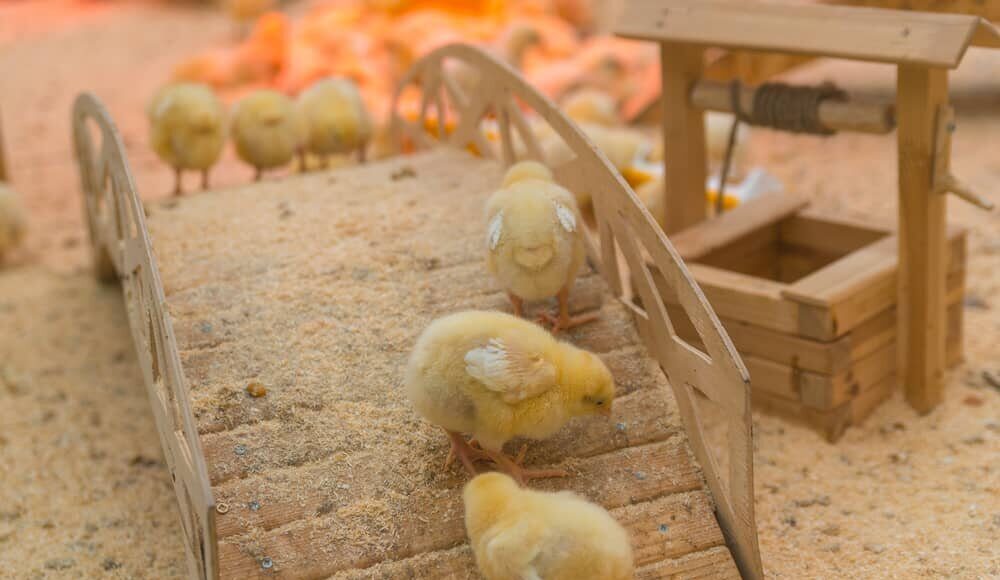Raising chickens is an incredibly fulfilling hobby, and it all starts with proper care of your chicks. If you’re a novice in the world of poultry, you’re likely wondering where to begin. One of the most critical aspects is setting up a chick brooder to ensure your chicks develop into healthy and robust chickens. Here, we’ll provide you with some chick brooder tips for beginners to help you get started.

1. What is a Chick Brooder?
A chick brooder is a heated enclosure that provides a safe and controlled environment for chicks to grow. It is essential for keeping the chicks warm and away from potential predators. A well-maintained brooder is pivotal for the healthy development of your chicks.
2. Choosing the Right Brooder
Selecting the best brooder for your needs is essential. Consider factors like the size, material, and design. You can even create a repurposed brooder using items you already have. This approach can be cost-effective and sustainable.
3. Ideal Brooder Location
Position your brooder in a quiet, draft-free area. Ensure it is away from direct sunlight and water sources to maintain a stable environment. The location should allow easy access for you to monitor and care for the chicks.
4. Maintaining the Right Temperature
Temperature is crucial for the health of your chicks. Start with a temperature of around 95F (35C) and decrease it by 5F each week. Use a reliable heat source to maintain consistent warmth. Regularly monitor the temperature with a thermometer placed at chick level.
5. Bedding Options
Choose safe and absorbent bedding materials like pine shavings or paper towels. Avoid using cedar shavings as they can be harmful to chicks. Keep the bedding clean and dry to prevent disease.
6. Feeding Your Chicks
Provide a balanced diet with chick starter feed containing essential nutrients. Make sure the feed is accessible and fresh. You can introduce grit into the brooder as they grow, which aids their digestion. For more detailed guidance, check out our grit introduction guide.
7. Water Supply
Always ensure there is fresh and clean water available. Use a shallow dish to prevent drowning, and change the water regularly to keep it hygienic.
8. Socialization and Handling
Spend time with your chicks daily to socialize them. Handling them gently will make them more accustomed to human interaction and reduce stress.
9. Cleaning and Maintenance
Regular cleaning is vital for your chicks’ health. Maintain a consistent cleaning schedule to prevent the buildup of waste and bacteria. For cleaning tips, you can refer to our article on cleaning a chick brooder.
10. Monitoring Health
Keep a close eye on your chicks for any signs of illness. Symptoms like lethargy, coughing, or unusual behavior should be addressed immediately. It’s essential to act quickly to prevent the spread of disease.
11. Gradual Introduction to the Outdoors
As your chicks mature, they can gradually be introduced to the outdoors. Start with short, supervised sessions in a secure area. This will help them acclimatize to their new environment safely.
12. Brooder Security
Ensure your brooder is secure from predators. Use a lid or mesh cover to protect the chicks and keep them from escaping or being harmed.
13. Transition to the Coop
When your chicks are fully feathered and the weather is mild, they can transition to the coop. Ensure the coop is ready with proper ventilation, bedding, and security before moving them.
14. Learning Resources
Expand your knowledge by reading books, joining online forums, or watching tutorials. Websites like PetMD offer valuable information on chick care.
15. Joining a Community
Becoming part of a poultry community can provide support and advice. Sharing experiences with other enthusiasts can be beneficial and enjoyable.

FAQs
1. How long should chicks stay in the brooder?
Chicks typically stay in the brooder for 6-8 weeks until they are fully feathered and can regulate their body temperature.
2. What temperature should a brooder be?
Start with 95F (35C) and decrease by 5F each week until the chicks are ready for their outdoor coop.
3. Why is my chick lethargic?
Lethargy can be a sign of illness or improper brooder conditions. Check the temperature, food, water, and consult a veterinarian if necessary.
This article contains affiliate links. We may earn a commission at no extra cost to you.











